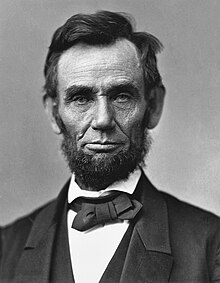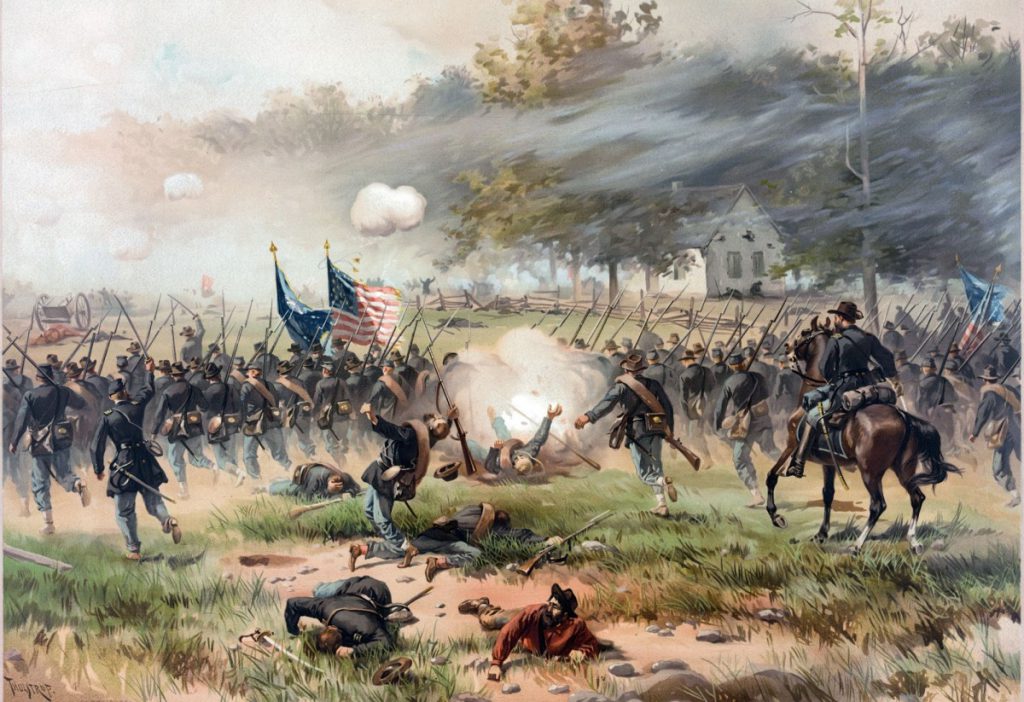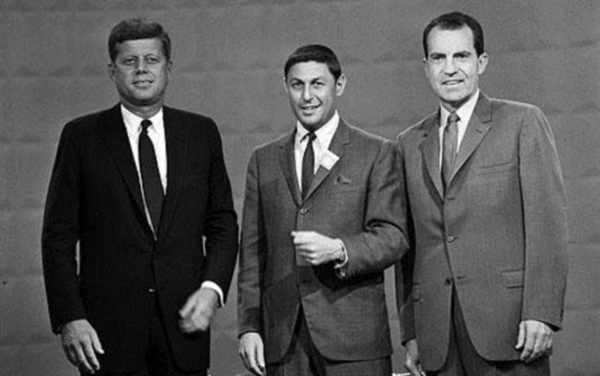
22 September
Lincoln issues Emancipation Proclamation
|
Abraham Lincoln
|
|
|---|---|
 |
On September 22, 1862, President Abraham Lincoln issues a preliminary Emancipation Proclamation, which sets a date for the freedom of more than 3 million black slaves in the United States and recasts the Civil War as a fight against slavery.
Lincoln’s Gettysburg Address
When the Civil War broke out in 1861, shortly after Lincoln’s inauguration as America’s 16th president, he maintained that the war was about restoring the Union and not about slavery. He avoided issuing an anti-slavery proclamation immediately, despite the urgings of abolitionists and radical Republicans, as well as his personal belief that slavery was morally repugnant. Instead, Lincoln chose to move cautiously until he could gain wide support from the public for such a measure.
In July 1862, Lincoln informed his cabinet that he would issue an emancipation proclamation but that it would exempt the so-called border states, which had slaveholders but remained loyal to the Union. His cabinet persuaded him not to make the announcement until after a Union victory. Lincoln’s opportunity came following the Union win at the Battle of Antietam in September 1862. On September 22, the president announced that slaves in areas still in rebellion within 100 days would be free.

1875 September 23
Billy the Kid arrested for first time
|
Billy the Kid
|
|
|---|---|

Enhanced photo of Billy the Kid, c. 1880
|
|
| Born |
Henry McCarty[1]
September 17 or November 23, 1859 (disputed) |
| Died | July 14, 1881 (aged 21) |
| Cause of death | Gunshot wound |
On September 23, 1875, Billy the Kid is arrested for the first time after stealing a basket of laundry. He later broke out of jail and roamed the American West, eventually earning a reputation as an outlaw and murderer and a rap sheet that allegedly included 21 murders.
The exact details of Billy the Kid’s birth are unknown, other than his name, William Henry McCarty. He was probably born sometime between 1859 and 1861, in Indiana or New York. As a child, he had no relationship with his father and moved around with his family, living in Indiana, Kansas, Colorado and Silver City, New Mexico. His mother died in 1874 and Billy the Kid—who went by a variety of names throughout his life, including Kid Antrim and William Bonney—turned to crime soon afterward.
McCarty did a stint as a horse thief in Arizona before returning to New Mexico, where he hooked up with a gang of gunslingers and cattle rustlers involved in the notorious Lincoln County War between rival rancher and merchant factions in Lincoln County in 1878. Afterward, Billy the Kid, who had a slender build, prominent crooked front teeth and a love of singing, went on the lam and continued his outlaw’s life, stealing cattle and horses, gambling and killing people. His crimes earned him a bounty on his head and he was eventually captured and indicted for killing a sheriff during the Lincoln County War. Billy the Kid was sentenced to hang for his crime; however, a short time later, he managed another jail break, murdering two deputies in the process. Billy the Kid’s freedom was brief, as Sheriff Pat Garrett caught up with the desperado at Fort Sumner, New Mexico, on July 14, 1881, and fatally shot him.
- 1789 September 24
- The first Supreme Court is established
-
First photograph of the U.S. Supreme Court, by Mathew Brady, 1869 (courtesy of National Archives).
The Judiciary Act of 1789 is passed by Congress and signed by President George Washington, establishing the Supreme Court of the United States as a tribunal made up of six justices who were to serve on the court until death or retirement.
That day, President Washington nominated John Jay to preside as chief justice, and John Rutledge, William Cushing, John Blair, Robert Harrison, and James Wilson to be associate justices. On September 26, all six appointments were confirmed by the U.S. Senate.
- 1957 September 25
Little Rock Nine begin first full day of classes
Under escort from the U.S. Army’s 101st Airborne Division, nine black students enter all-white Central High School in Little Rock, Arkansas. Three weeks earlier, Arkansas Governor Orval Faubus had surrounded the school with National Guard troops to prevent its federal court-ordered racial integration. After a tense standoff, President Dwight D. Eisenhower federalized the Arkansas National Guard and sent 1,000 army paratroopers to Little Rock to enforce the court order.
- 1960 September 26
First Kennedy-Nixon debate

For the first time in U.S. history, a debate between major party presidential candidates is shown on television. The presidential hopefuls, John F. Kennedy, a Democratic senator of Massachusetts, and Richard M. Nixon, the vice president of the United States, met in a Chicago studio to discuss U.S. domestic matters.

- 1779 September 27
- John Adams appointed to negotiate peace terms with British

On this day in 1779, the Continental Congress appoints John Adams to travel to France as minister plenipotentiary in charge of negotiating treaties of peace and commerce with Great Britain during the Revolutionary War.
Adams had traveled to Paris in 1778 to negotiate an alliance with France, but had been unceremoniously dismissed when Congress chose Benjamin Franklin as sole commissioner
- 1941 September 28
Ted Williams becomes last player to hit .400

On this day in 1941, the Boston Red Sox’s Ted Williams plays a double-header against the Philadelphia Athletics on the last day of the regular season and gets six hits in eight trips to the plate,
to boost his batting average to .406 and become the first player since Bill Terry in 1930 to hit .400. Williams, who spent his entire career with the Sox, played his final game exactly 19 years later,
on September 28, 1960, at Boston’s Fenway Park and hit a home run in his last time at bat, for a career total of 521 homeruns.
THANK YOU MUCH
HOPE WE C U
NEXT WEEK
XXIX-V
Published: Sep 22, 2019
Latest Revision: Sep 24, 2019
Ourboox Unique Identifier: OB-674722
Copyright © 2019








